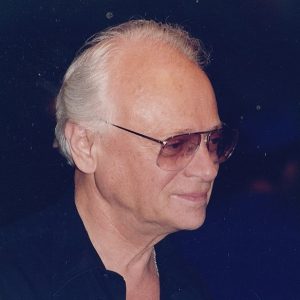Checkmate
Every few decades a true prodigy emerges in the likes of art, music and science. It is difficult to categorise the brilliance of the late Ephraim Kishon. Not only was he a prodigy of the pen and one of the greatest and funniest men in living history, he was also a man who laughed his way out of death and straight into life.
Kishon was born in Budapest, in 1924. His well-to-do Jewish parents named him with an appropriate Hungarian name, Ferenc Hoffmann. Although he excelled at school, fate cut his hopes short with the Nazi invasion of Hungary. First he was excluded from all further studies, and as the war frenzied to an end, he was deported to several concentration camps.
It was under these terrible and stressful times that the young Ferenc Hoffmann survived. To deter the Nazi guards from killing him, he often used his ingenuity. Once he challenged his captors to a series of chess games. In another camp, to avoid deportation and certain gassing in the Sobibor extermination camp, by feigning death. He went on to escape, returned to Budapest, adopted a false name and then got arrested by the Soviets where he was sent this time to a Russian prisoner camp.
Just a couple of years after the war ended, when he was already writing short satire essays in Hungarian for his countrymen, in his own words, he sort of “came across the good news” that an independent Jewish state had been established. He immediately set sail to Israel. When the boat landed in Haifa and he informed the Israeli clerk that his name was Ferenc, the clerk insisted Ferenc was not a real name, so he gave him the name Ephraim. Fumbling around for a family name, he told Ephraim that it should be “Kishon” after the river in the valley just below Mount Carmel where Ephraim and other immigrants were being processed for immigration.
“Having a bonafide Israeli name, doesn’t enable someone to magically speak Hebrew”
But having a bonafide Israeli name, doesn’t enable someone to magically speak Hebrew. Determined to continue to write satire – whatever the cost – for two whole years Kishon spent every free moment of his day meticulously copying out words in the Hebrew dictionary. Within just two years he had more than mastered the language and even earned a prestigious column in one of Israels most popular daily newspapers.
Inventing puns, words and phrases, Kishon’s command of the Hebrew language became legendary. In the painful 1950’s which saw extreme poverty with a demolished population of Holocaust survivors and Jewish refugees from Arab lands, Kishon was masterful at getting people to laugh at the absurdity of the melting pot of the new state of Israel. His biggest success was writing the script for the Israeli iconic movie “Sallah Shabati,” a comedy about an Iraqi Jew who emigrates to Israel and invests his energy in get-rich-quick schemes while struggling with systematic xenophobia and cultural adaptation. With zero experience writing for film, Kishon astonishingly grabbed the Golden Globe, opened and closed the Berlin Film Festival, and even saw his movie nominated for an Academy Award.
“It gives me great satisfaction to see the grandchildren of my executioners queuing up to buy my books.”
Reading the monumental works of satire he left behind, (which have been translated into dozens of languages) it is hard to believe that Ephraim Kishon’s harrowing experiences did not suppress his zest for life and sense of humour. Even though he spent the last years of his life in Europe, even that was done tongue-in-cheek, when he inimitably remarked, “It gives me great satisfaction to see the grandchildren of my executioners queuing up to buy my books.”






